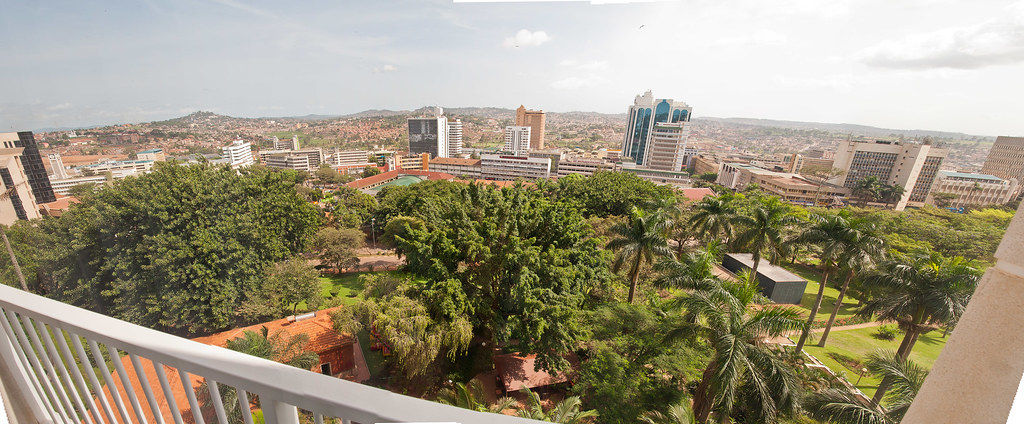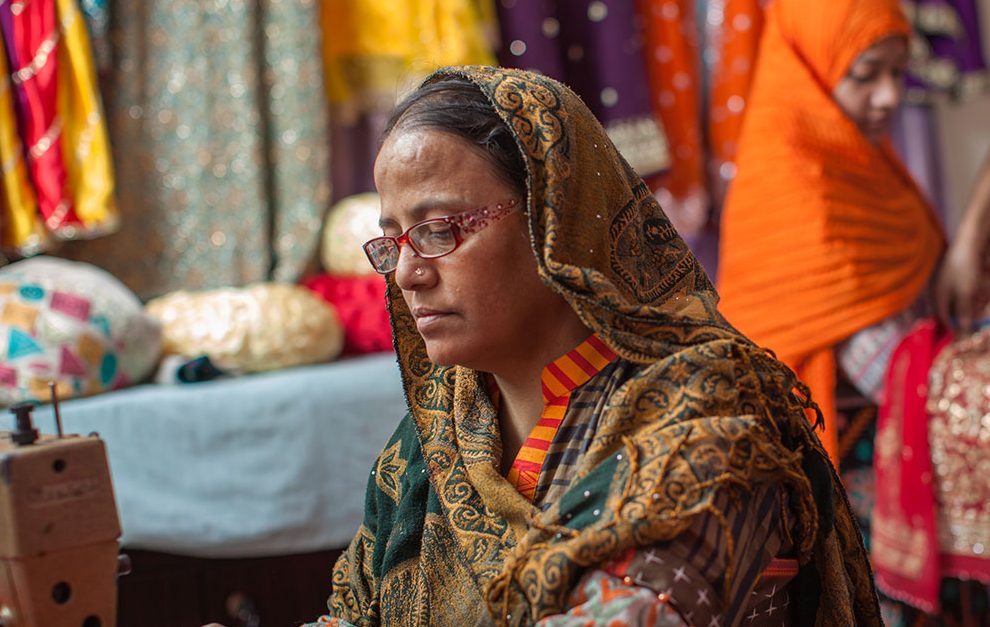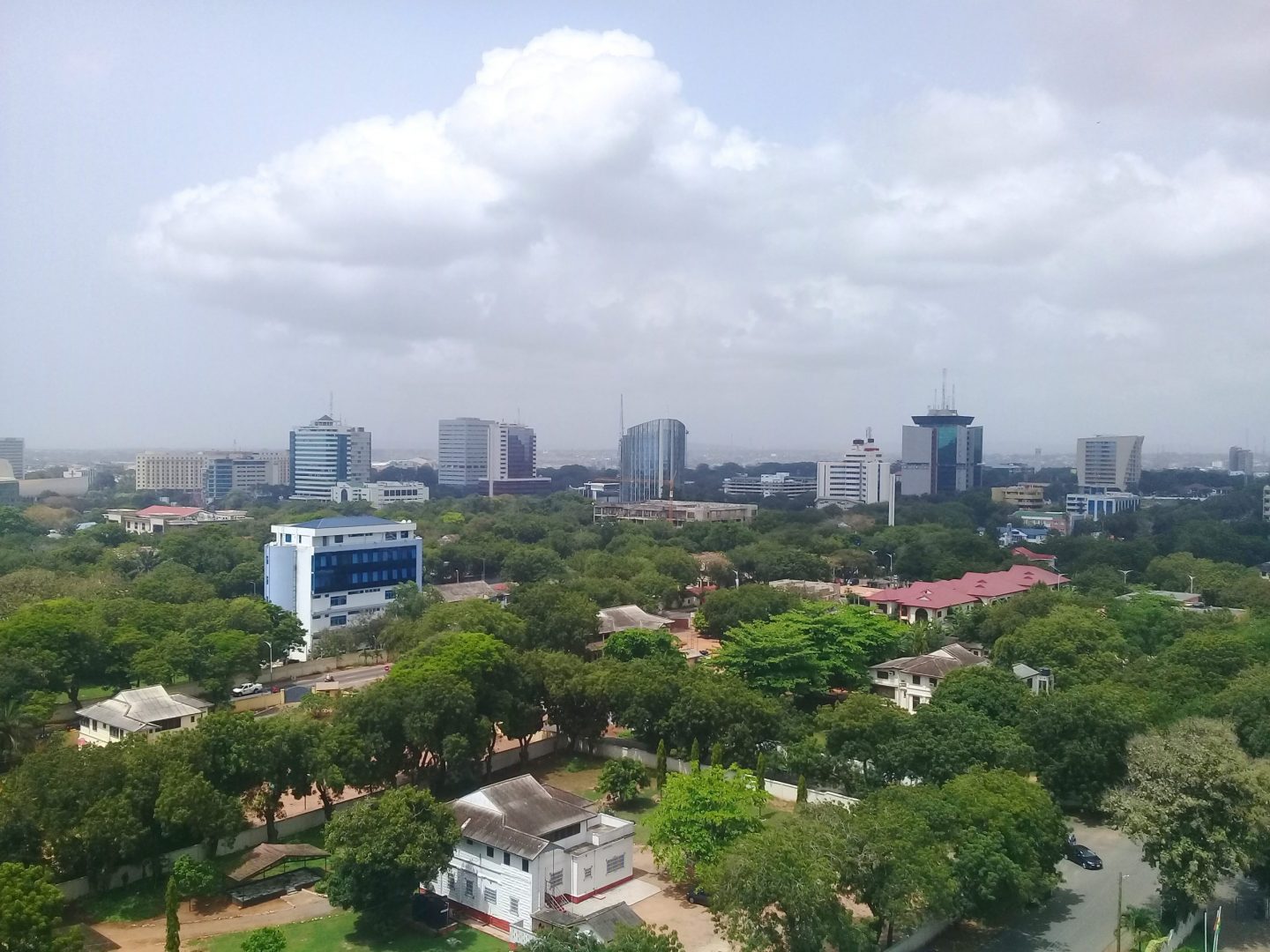The power of market-creating innovations: harnessing entrepreneurship for global prosperity
Efosa Ojomo, co-author of The Prosperity Paradox and Senior Fellow at the Christensen Institute on Disruptive Innovation, says that for global prosperity and sustainable, inclusive growth, funding needs to be directed to economic development programmes that work in the long-term.
At our Insight event in January 2021, Ojomo joined our Head of External Affairs Colin Buckley and Investment Committee member Nikunj Jinsi to talk about how focused and impact driven market innovations could support developing economies to evolve from poverty to prosperity in less than two decades.
When Ojomo started a non-profit organisation in 2008, it didn’t take long for him to realise that there was room for improvement with his strategy. Gripped by the books he’d read on poverty, economics and development, the young Ojomo had gone back to his native Nigeria to build wells in poor communities. They all broke within nine months.
“That strategy is a microcosm of almost the entire development industry,” he says. “Let’s go to a poor region, see what they lack—whether that’s schools, hospitals, infrastructure, or wells—we don’t really appreciate the critical mechanism at the core that keeps those things sustainable.”
You can watch a recording of the event here
Under the wing of the late Professor Clay Christensen at Harvard, he discovered that market-creating innovation was the critical missing piece in the development puzzle. At its core, Ojomo explains, market-creating innovation transforms complicated and expensive products into simple, affordable ones. When an innovator creates a new market with affordable products, three things happen: they create jobs, they create taxes that improve societies and—less tangibly but perhaps most powerfully—a cultural shift that values entrepreneurship and innovation.
“I like to use examples from Africa, not just because I’m from there but because if it can happen in Africa it can happen almost anywhere in the world,” he says. “Let’s take Celtel, a company which CDC invested in. When Mo Ibrahim founded Celtel twenty years ago, people said he was crazy. ‘You want to give cell phones to the average African? There’s poverty, corruption, no infrastructure. It won’t work.’ But fast-forward to today and not only is Mo Ibrahim a billionaire, but Celtel became Airtel, which other companies have catalysed, and in doing so, created a market for mobile phones across Africa.
“People say that it happened because the timing and technology was right, but 20 years ago it was hard for him to get this off the ground. Look at the impact it’s had today: over a hundred mobile phone companies on the continent, providing millions of jobs and representing a couple of hundred billion dollars in economic value. That’s the power of market creating innovations in development.”
While the concept is simple, making market-creating innovation a reality in economies is obviously a lot more complex, says Ojomo. “We have to build ecosystems”, he says. “Knowledge is not enough.” Right now, he’s working with MIT on creating a boot camp that will bring together a global community of leaders who have the power to set change in motion, but he knows what he and others are up against.
“Right now we have an industry that celebrates people who build wells, metaphorically speaking. It punishes people who take risks. It’s a challenge to change the resource processes and the priorities of an organisation, but it starts with the kind of people you hire. Are you hiring people with an entrepreneurial background?”
Unless we start to address the more difficult changes, in 50 years, places in Africa and countries like Bangladesh will be in a similar position to today, says Ojomo. “Maybe they’ll grow here and there, but for the kind of catalytic growth and transformation we need, we have to think differently about how we make investments.”
Does venture capital have a role in that transformation? Nikunj Jinsi, an Investment Committee member at CDC and Managing Partner of Better Future Capital Partners, says that because venture capital looks to invest in projects that are scalable and repeatable, it’s an opportunity to develop solutions which are both sustainable and deliver long-term financial profit.
“A great example of a simple, transformative, sustainable solution that CDC has invested in through one of its fund investments is a company called Kobo 360,” says Jinsi. “It’s a marketplace where long-haul truckers, shippers and clients can get information on a real-time basis. It’s increased efficiencies in delivery and fuel usage, which generates more income for truckers and is better for the environment. It’s expandable because it’s a marketplace driven by digital technology that everyone, including low-paid truckers, can access. We’ve already seen it be scaled up.”
For Ojomo, the investors who steward capital are the most important piece of this puzzle. “The role you play in not just returning capital to the capital providers, but in building a country and a continent, is crucial.
“When I left Nigeria over 20 years ago, I had no hope. It was too corrupt, too poor, not enough infrastructure, electricity or water. But after doing research with Clay Christensen, I know it’s going to be incredibly difficult, but many emerging markets can become prosperous.
“The paradigm just has to shift from building wells to enabling entrepreneurs and empowering people.”
This article is based on discussions at our recent event ‘The power of market creating innovations’, part of our Insight event series. Catch up on the event recording, listen to the podcast below and find out about our future events.









